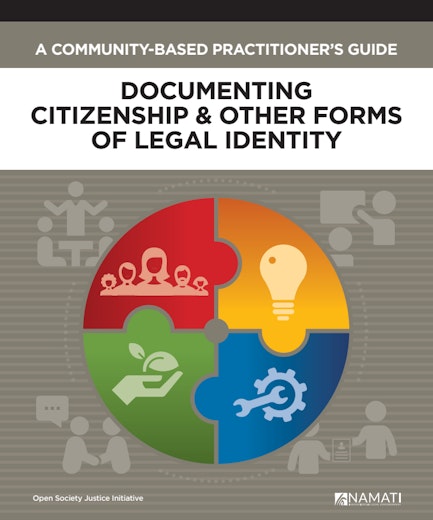Nazari v. Denmark
No Transparency in Citizenship Procedure
In Denmark, citizenship is still granted by an act of parliament. This means that decisions to grant or deny citizenship are made on a political basis, in secret, and with no possibility to challenge the decision before the courts. This has a profound effect on those who are denied citizenship – the right to have rights – and who find themselves unable to resolve the situation.
Facts
Khalil Nazari was born in Afghanistan in 1986. He was granted asylum in Denmark in 2001 when he was 15 years old, as an unaccompanied minor. It took him 10 years to discover that his parents and siblings had resettled in Canada. In the meantime he had studied Danish and went to university where he qualified as a civil engineer.
Several years after he had lived in Denmark, Mr. Nazari applied for naturalization as a Danish citizen. On 6 October 2010 the then Ministry for Refugees, Immigrants and Integration (Ministeriet for flygtninge, indvandrere og integration) informed him that his name would be on the next bill of naturalisation. This bill was scheduled to be approved by Parliament in July 2011.
On April 15, 2011 the ministry notified Mr. Nazari that the Parliamentary Committee on Naturalization had in fact decided that he was not eligible for naturalization. No reasons were given for this decision, there was no appeal, and he was not allowed to file a new application for naturalization for five years.
One of the few reasons that naturalization might be denied for a specific period is contained in a 2008 Circular Letter which permits such a denial where the National Security Service (Polities Efterretningstjeneste, or “PET”) considers that the applicant is a danger to national security. Mr Nazari concluded that this must have happened, even though there were no grounds to consider him such a risk.
In May 2011, Mr. Nazari asked the PET to give him access to any documents that may have been provided to the parliamentary committee. They refused, saying that they could neither confirm nor deny whether they had any such information. He complained about this decision to both the Ministry of Justice and the Ministry for Refugees, Immigrants, and Integration, but to no avail.
Mr. Nazari subsequently filed an application to the European Court of Human Rights arguing that:
- The Danish Authorities’ refusal to grant him Danish citizenship violated his right to respect for private and family life, and that it was arbitrary as well as discriminatory in breach of Articles 8 (private life) and 14 (non-discrimination) of the European Convention on Human Rights.
- The lack of any adversarial process by which he could challenge the decision to refuse to grant him a Danish citizenship breached his rights under Article 13 (access to a remedy) of the Convention.
In September 2013, the Danish Supreme Court ruled in an unrelated case that naturalization applicants may seek judicial review of denials to review compliance with international law and assess damages. The Supreme Court’s decision applies to determinations made by the responsible government ministry, but not the parliamentary committee that ultimately decides whose name is listed on a naturalization bill.
Open Society Justice Initiative Involvement
The Justice Initiative filed a third party intervention before the Court.
Arguments
The Justice Initiative addressed the following issues in order to assist the Court in its consideration of the case:
Impact of denial of citizenship. Denial of citizenship to long-term migrants has a substantial impact on multiple facets of their private and family life. It prohibits full civic participation, and presents a barrier to their social integration and relations. It also restricts their personal development and impacts on their socio-economic situation. The effect is all the greater for a refugee.
Danish naturalization procedure in a European context. A comparison of the Danish citizenship law and naturalization procedure with other naturalization mechanisms across Europe reveals that Denmark is an outlier by virtue of the unfettered discretion granted to Parliament, the fact that administrative law does not apply to either the executive or parliamentary decisions on naturalization, the failure to give reasons for denial of naturalization applications, and the lack of any review of denial of citizenship.
In October 2016 the Court determined that in light of the Danish Supreme Court’s September 2013 decision, Mr. Nazari did not exhaust an available domestic remedy in the form of an action for judicial review under Article 63 of the Danish Constitution, which provides for review of administrative decisions. The Court noted that although the 2013 decision came two years after Mr. Nazari filed his application, under the particular circumstances of the case the remedy should be considered as being sufficiently certain to require exhaustion.
The Court issues a decision finding the case inadmissible.
The Justice Initiative files a third party intervention.
The case is communicated to the Danish Government.
Nazari files an application with the European Court of Human Rights.
Related Cases
Related Work
Saving Newborn Rohingya from a Legal Abyss
The government of Bangladesh has already promised to uphold its obligation to register newborn Rohingya refugees. For the sake of international law—and the children’s future—it must stop dragging its feet.

A Community-Based Practitioner’s Guide: Documenting Citizenship and Other Forms of Legal Identity
This guide provides instructions on how to establish a community-based paralegal program to help people document citizenship and other forms of legal identity.

Justice Initiative Welcomes First UN Human Rights Committee Ruling on the Right to Nationality for Children
The UN Human Rights Committee has found, in the case of Zhao v. Netherlands, that the Netherlands violated the rights of a child, Denny Zhao, by assigning him the status of “unknown” nationality when his birth in the country was registered.